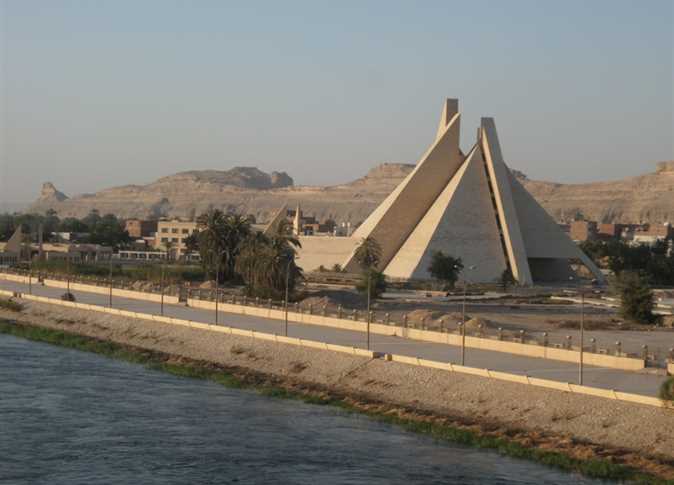Egypt, post-Mubarak. That long dreamt-about era has finally arrived. A new Egypt! Youth! Revolution! I wonder how many Egyptians imagined what it might be like, as the years paraded by, or if they imagined it at all. I often daydreamed about Mubarak’s death and the elation it would bring: things would never be the same.
I pictured Cairo reborn, lighthearted and buoyant, full of ease and self-assurance. When the news broke that he’d died, everyone would run outside and into each other’s arms. As if emerging from a bad dream we’d kiss and hug and say things like, “ya lahwi! look at this mess – let’s clean it up!” Girls would wear cool summer frocks again, free their arms and legs and luxuriant hair. Guys would flirt like they used to, singing snatches of love songs out of tune, and public displays of affection would no longer be taboo.
Because Egyptians love music, dancing and socializing, I imagined speakeasies and dancehalls opening in underused cinemas and empty flats. Available spaces in every quarter would be filled with impromptu concerts, theater and dance. Poor people always shared, but rich ones would join in, reveling in the company of their fellow Egyptians, finding ingenious ways to redistribute their funds. Ah, what a time we’d have when Mubarak was no longer President! And what great people we would be when he was gone and everything, suddenly, became possible!
Although people power, not divine intervention, ended Mubarak’s political life, it’s the aftermath that counts. My dreams of the post-Mubarak era clearly did not extend past the ecstatic opening of new possibilities to what they might actually be or how to realistically pursue them. Nor was I the only shortsighted one. Recall the outrage, in recent years, over the fact that Mubarak would not appoint a vice-president. What will we do when he dies? As if a vice-president would be sufficient preparation for the next chapter of Egypt’s history, and as if Gamal was the only unacceptable yet probable candidate for his replacement.
No one in Egypt – perhaps the world – could think beyond this man’s tenure. This is partly because the corridors of power intended business to continue as usual with someone “appropriate” filling his chair, but what of 80 million Egyptians? Yes, people were afraid or else busy surviving, complaining, defending themselves from the rabid police, but no one had prepared for what Egypt could or should become. The only thing everyone agreed upon was that Mubarak must go. And he remains the target of bitter reproach, as if he alone were responsible for Egypt’s woes.
Until recently, politics was a spectator sport in Egypt. But Egyptians, once the most trenchant commentators on politics as tragicomic theater, have now stepped upon the stage. That they make a better audience than actors at the moment should come as no surprise. The very concept of leadership goes against the grain of conformism which, in the absence of civil rights or the effort to win them, has reached deeper into the psyche of this society than anyone is ready to admit. Egyptians, like most humans, crave stability and do not love extremes, a fact that ideologues have always used to their advantage. Whether standing on a political, religious or corporate platform, they encourage us to relinquish responsibility for ourselves and one another, to stop questioning and just accept the status quo.
Consequently there was no radical underground hatching plans for Egypt’s future, except in the God department, where the promise of justice and the provision of an exhaustive code of unassailably “right” behavior fell on fertile ground. But while liberals and activists despise the narrow thinking and intolerance of dogma, they are not entirely innocent of it.
Commentators are listing the obstacles to the so-called revolution (more Emergency Law, arbitrary detainment, brutality, censorship) but it is conformism, the unwillingness to think differently and act freely, that also stands in Egypt’s way. For example, why must people who died in demonstrations be called “martyrs”? Why was this appellation, with its religious or else hyper-patriotic connotations, so instantly accepted? Surely many of those who lost their lives did not intend to do so, but were caught in the crossfire. Referring to these casualties as martyrs idealizes and therefore diminishes the truly aberrant horror of violence directed toward peaceful and unarmed human beings. Is a citizen who dies demanding his/her rights any less worthy of tribute than a martyr? Little wonder that “retribution for the martyrs” is more prominent in some peoples’ minds than pursuing civic freedom in their names.
Some of us have noticed that to speak of anything but “the revolution” is frowned upon, not an uprising, or a de facto coup – only a revolution! And don’t forget to mention “Egyptian youth”, for in their hands our future lies, for it is they who shouldered the burden etc., as if Egyptians of every age had not sacrificed their lives and dreams wishing fervently for a better way, and as if every Egyptian, young and old, is today not called upon to think and act responsibly. For now, alas, the engaged Egyptian minority is on the defensive, reacting to events, countering authoritarian refusals with repeated demands and protests, but movement, however welcome, does not always equal action.
Habit, whether personal or social, resists dreams and efforts alike; only vigilance can break it down. So to preserve the self-awareness that for a moment transformed Egypt, let us speak of citizens, not martyrs, of a successful and inspiring popular uprising, not a faltering or failed revolution, and of a people – not just youth – who long for change but only now, this minute, are considering what change might mean and whether or not they’re up for it.
Maria Golia, a long-time resident of Egypt, is the author of Cairo, City of Sand (2004) and Photography and Egypt (2010).




